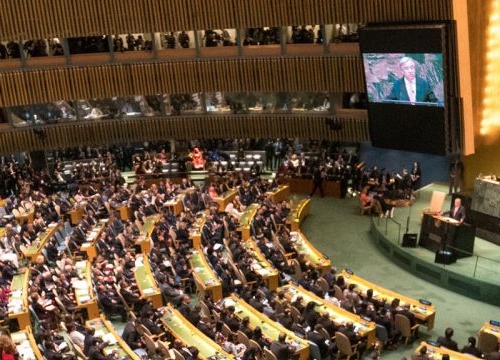The Geneva Human Rights Platform Inputs the Final Stage of the UN Treaty Body Review 2020 Process


NATO
11 August 2020
Six years since the adoption of its Resolution 68/268 on strengthening the United Nations (UN) treaty body (TB) system, the General Assembly is set to review the successes and challenges of this resolution’s implementation, whilst considering necessary adaptations in light of the lessons learned so far. In this context, Switzerland and Morocco – as co-facilitators of the 2020 treaty body review process – are organizing informal consultations with the Member States in New York (27 July 2020, available on UNTV) and in Geneva (upcoming, on 28 August 2020). They will also hold dialogues with all relevant stakeholders to seek their contributions.
‘We are pleased to contribute to these consultations and to the final stage of the review, notably via a written submission that includes the different proposals we have put on the table since the beginning of the process. These proposals – which can be implemented without reopening the treaties – are the outcome of a multi-year process of academic research and consultations, along with multi-stakeholder consultations’ underlines Felix Kirchmeier, Executive Director of the Geneva Human Rights Platform.
Towards a More Effective and Efficient TB System
The submission outlines a number of proposals towards increased effectiveness and efficiency of the TB system. They notably include:
- A default simplified reporting procedure
- The introduction of a coordinated fixed reporting schedule, with the possibility to submit coordinated State reports and the set up of coordinated TB state reviews
- The alignment of TB rules of procedure and working methods, including on engagement with domestic stakeholders
- More specific and precise Concluding Observations, with further substantive coordination with the UPR and Special Procedures mandate holders
- An expanded institutionalized follow-up of TB recommendations at the national level
- The introduction of a modern (digital) case management system for individual communications linked to a jurisprudence data-base.
‘The implementation of these various recommendations would allow UN TBs to work in a more efficient way and to address the backlog, including in the communications procedure, and in general, align their working methods in an anticipatory manner’ explains Felix Kirchmeier.
‘They would also ensure better implementation of UN TB’s recommendations at the national level, which, ultimately, will contribute to better protection and respect for human rights in the field’ he adds.









